Vedanta Quotes
Quotes tagged as "vedanta"
Showing 1-30 of 238

“You are never alone. You are eternally connected with everyone.”
― Meditation: Insights and Inspirations
― Meditation: Insights and Inspirations

“Om is not just a sound or vibration. It is not just a symbol. It is the entire cosmos, whatever we can see, touch, hear and feel. Moreover, it is all that is within our perception and all that is beyond our perception. It is the core of our very existence. If you think of Om only as a sound, a technique or a symbol of the Divine, you will miss it altogether. Om is the mysterious cosmic energy that is the substratum of all the things and all the beings of the entire universe. It is an eternal song of the Divine. It is continuously resounding in silence on the background of everything that exists.”
― Om Chanting and Meditation
― Om Chanting and Meditation

“Your greatest awakening comes, when you are aware about your infinite nature.”
― Meditation: Insights and Inspirations
― Meditation: Insights and Inspirations

“Never say, "O Lord, I am a miserable sinner." Who will help you? You are the help of the universe. What in this universe can help you? What can prevail over you? You are the God of the universe; where can you seek for help? Never help came from anywhere but from yourself. In your ignorance, every prayer that you made and that was answered, you thought was answered by some Being, but you answered the prayer yourself unknowingly. The help came from yourself, and you fondly imagined that someone was sending help to you. There is no help for you outside of yourself; you are the creator of the universe. Like the silkworm, you have built a cocoon around yourself. Who will save you? Burst your own cocoon and come out as a beautiful butterfly, as the free soul. Then alone you will see Truth.”
― The Complete Works of Swami Vivekananda, Volume 3
― The Complete Works of Swami Vivekananda, Volume 3

“Remember your connection with the cosmos. Remember your connection with the infinity and that remembrance will give you the freedom.”
― Enlightenment Step by Step
― Enlightenment Step by Step

“Beyond the corridor of our space-time there are infinite numbers of universes, each of them is governed by its own set of laws and physics.”
― Enlightenment Step by Step
― Enlightenment Step by Step
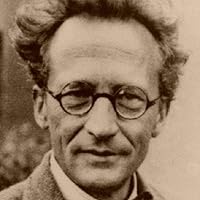
“No self is of itself alone. It has a long chain of intellectual ancestors. The "I" is chained to ancestry by many factors… This is not mere allegory, but an eternal memory.”
―
―
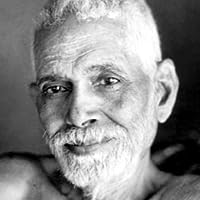
“The pure mind is itself Brahman; it therefore follows that Brahman is not other than the mind of the sage.”
― Talks With Ramana Maharshi: On Realizing Abiding Peace and Happiness
― Talks With Ramana Maharshi: On Realizing Abiding Peace and Happiness

“Brahman is the ultimate reality; it is simultaneously Saguna and Nirguna; divisions are due to ignorance. Mind and intellect can never catch hold of it; they have only one option and that is to merge with it.”
―
―

“if being is many, it must be both like and unlike, and this is impossible, for neither can the like be unlike, nor the unlike like”
―
―

“Spirituality is not creating boundaries but creating space for others to come into your life.”
― Enlightenment Step by Step
― Enlightenment Step by Step

“True virtue is knowing the self not by intellectual knowledge but by pure silence.”
― Peace Bliss Beauty and Truth: Living with Positivity
― Peace Bliss Beauty and Truth: Living with Positivity

“No Self stands alone. Behind it stretches an immense chain of physical and - as a special class within the whole - mental events, to which it belongs as a reacting member and which it carries on. Through the condition at any moment of its somatic, especially its cerebral system, and through education, and tradition, by word, by writing, by monument, by manners, by a way of life, by a newly shaped environment... by so much that a thousand words would not exhaust it, by all that, I say, the Self is not so much linked with what happened to its ancestors, it is not so much the product, and merely the product, of all that, but rather, in the strictest sense of the word, the SAME THING as all that: the strict, direct continuation of it, just as the Self aged fifty is the continuation of the Self aged forty.”
― My View of the World
― My View of the World
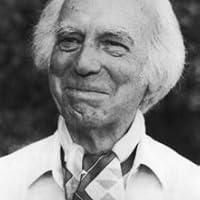
“Go deeply into the urge to be silent and not the mental interference of how, where and when. If you follow silence to its source you can be taken by it in a moment.”
― Who Am I?: The Sacred Quest
― Who Am I?: The Sacred Quest

“In our life there is one side which is finite and another side which is infinite. I want you to think about both the sides and design the best life and stand in their true values.”
― Walking the Path of Compassion
― Walking the Path of Compassion
“When we are happy, we don’t know that we are happy, because happiness requires childlike innocence. When a child is happy, he doesn’t know that he is happy. He doesn’t formulate it, he simply enjoys it.”
― The Perfume of Silence
― The Perfume of Silence
“It [realization of Oneness] means being constantly open to the possibility that we are like two flowers looking at each other from two different branches of the same tree, so that if we were to go deep enough inside to the trunk, we would realize that we are one. Just being open to this possibility will have a profound effect on your relationships and on your experience of the world.”
― The Perfume of Silence
― The Perfume of Silence

“You are the ultimate freedom, peace and bliss - free from the trace of desire, fear and doubts.”
― Peace Bliss Beauty and Truth: Living with Positivity
― Peace Bliss Beauty and Truth: Living with Positivity
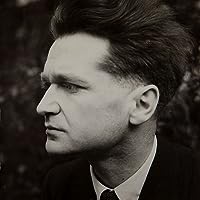
“Magnificat de Bach. Remué jusqu'aux larmes. Il est impossible que ce qui s'y exprime n'ait qu'une réalité subjective. L'« âme » doit être de la même essence que l'absolu. Et c'est le Vedânta qui a raison.”
― Notebooks
― Notebooks
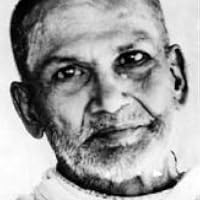
“In a heart that has drowned itself in the awareness of true jñāna, which is wholly love, bliss in its fullness will surge forth. Tormenting desires that arise through delusion do not exist there. That life, existing as the extremely pure svarūpa, is wholly peace.”
― Guru Vachaka Kovai
― Guru Vachaka Kovai

“Can infinity have parts? What is meant by parts of infinity? If you reason it out, you will find that it is impossible. Infinity cannot be divided, it always remains infinite. If it could be divided, each part would be infinite. And there cannot be two infinites. Suppose there were, one would limit the other, and both would be finite. Infinity can only be one, undivided. Thus the conclusion will be reached that the infinite is one and not many, and that one Infinite Soul is reflecting itself through thousands and thousands of mirrors, appearing as so many different souls. It is the same Infinite Soul, which is the background of the universe, that we call God. The same Infinite Soul also is the background of the human mind which we call the human soul.”
― Practical Vedanta
― Practical Vedanta
“Understand the difference between mystical art and mystical knowldge. Devotional music, life stories of mystics and gods, images, paintings etc. may temporarily transport you to mystical world but they can't give you mystical powers. Art is beautiful. Knowledge is boring. Ancient sages tried to mix art with knowledge. We discarded the knowledge but kept the art.”
―
―
“Some of the verse in "AshthavakraGIta" are so powerful that will take you to the far beyond cosmos and you will feel oneness with everything in the universe and all cosmos will be projected inside you. The day you know that all the things are the object is perceivable by the subject(knower) that is you, and you are not the body not the mind but the pure consciousness that illuminates the entire world.”
―
―
“Though each of the Vedas may be regarded as a separate work, their composition must have originated contemporaneously. Thus there is no clear division between the notion of the personification of stellar, atmospheric and chthonic phenomena and the henotheistic and henotic notions that finally superseded them. Some members of the brahmin and ksatra classes, and even of the südra, joined secret coteries in the seclusion of the forest and composed radical Äranyakas and Upanisads, which rejected ritual sacrifice as the sole means of liberation (moksa), and introduced a monistic doctrine. Such ideas challenged the stereotyped theological dogmas and revitalized religion in India. So great was their impact that the Äranyakas and Upanishads were finally regarded as the fulfilment of Vedic nascent aspirations, and therefore called the Vedanta, the end or conclusion ‘anta’ of the Veda.”
― Dictionary of Hinduism: Its Mythology, Folklore and Development 1500 BC - AD 1500
― Dictionary of Hinduism: Its Mythology, Folklore and Development 1500 BC - AD 1500
“Shankara’s views were gradually accepted, possibly because he presented brahman both as the cosmic principle and as a personal god (isvara), which added emphasis to the teaching of the later Upanisads and to that of Patañjali. Advaita Vedanta thus reinforced the teaching of the Bhagavadgitä and the concept of liberation (mukti) by grace (prasäda), faith (sraddha), and devotion (bhakti). It succeeded in reviving the ancient belief in the affinity of mankind with the world of nature. From being merely one of the darsanas, the Vedanta became an element that permeated all Hindu cults and dissolved sectarian distinctions. It gave to the Supreme Essence (paramätman), Vishnu and Shiva the common, all-inclusive designation, ‘Isvara’.”
― Dictionary of Hinduism: Its Mythology, Folklore and Development 1500 BC - AD 1500
― Dictionary of Hinduism: Its Mythology, Folklore and Development 1500 BC - AD 1500

“Thou art That". This is the essence of Vedanta; after all its ramifications and intellectual gymnastics, you know the human soul to be pure and omniscient, you see that such superstitions as birth and death would be entire nonsense when spoken of in connection with the soul. The soul was never born and will never die, and all these ideas that we are going to die and are afraid to die are mere superstitions. [...] The Vedanta teaches men to have faith in themselves first. As certain religions of the world say that a man who does not believe in a Personal God outside of himself is an atheist, so the Vedanta says, a man who does not believe in himself is an atheist.”
― Practical Vedanta
― Practical Vedanta

“If you do not feel for others, you may be the most intellectual giant ever born, but you will be nothing; you are but dry intellect, and you will remain so. [...] Do you not know from the history of the world where the power of the prophets lay? Where was it? In the intellect? Did any of them write a fine book on philosophy, on the most intricate ratiocinations of logic? Not one of them. [...] Feel like Christ and you will be a Christ; [...] It is feeling that is the life, the strength, the vitality, without which no amount of intellectual activity can reach God. Intellect is like limbs without the power of locomotion. It is only when feeling enters and gives them motion that they move and work on others. [...] It is one of the most practical things in Vedantic morality, for it is the teaching of the Vedanta that you are all prophets, and all must be prophets. The book is not the proof of your conduct, but you are the proof of the book. How do you know that a book teaches truth? Because you are truth and feel it. [...] Your godhead is the proof of God Himself. If you are not a prophet, there never has been anything true of God. If you are not God, there never was any God, and never will be.”
― Practical Vedanta
― Practical Vedanta
All Quotes
|
My Quotes
|
Add A Quote
Browse By Tag
- Love Quotes 97.5k
- Life Quotes 76k
- Inspirational Quotes 73k
- Humor Quotes 44k
- Philosophy Quotes 29.5k
- Inspirational Quotes Quotes 27k
- God Quotes 26k
- Truth Quotes 23.5k
- Wisdom Quotes 23.5k
- Romance Quotes 23k
- Poetry Quotes 22k
- Death Quotes 20k
- Happiness Quotes 18.5k
- Life Lessons Quotes 18.5k
- Hope Quotes 18k
- Faith Quotes 18k
- Quotes Quotes 16.5k
- Inspiration Quotes 16.5k
- Spirituality Quotes 15k
- Religion Quotes 15k
- Motivational Quotes 15k
- Writing Quotes 15k
- Relationships Quotes 14.5k
- Life Quotes Quotes 14k
- Love Quotes Quotes 14k
- Success Quotes 13.5k
- Time Quotes 12.5k
- Motivation Quotes 12k
- Science Quotes 11.5k
- Motivational Quotes Quotes 11.5k

